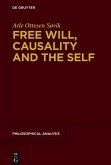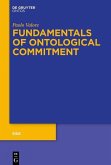This book presents a theory of free will which integrates the main motivations of compatibilists and libertarians, while at the same time avoiding their problems. The so-called event-causal libertarianism is the libertarian account closest to compatibilitsm, as it claims there is indeterminism in the mind of an agent. The charge of compatibilists, however, is that this position is impaired by the problem of luck. This book is unique in arguing that free will in a strong sense of the term does not require indeterminism in the brain, only indeterminism somewhere in the world which there plausibly is.
Dieser Download kann aus rechtlichen Gründen nur mit Rechnungsadresse in A, B, BG, CY, CZ, D, DK, EW, E, FIN, F, GR, HR, H, IRL, I, LT, L, LR, M, NL, PL, P, R, S, SLO, SK ausgeliefert werden.









